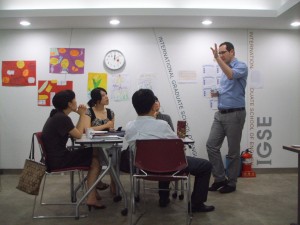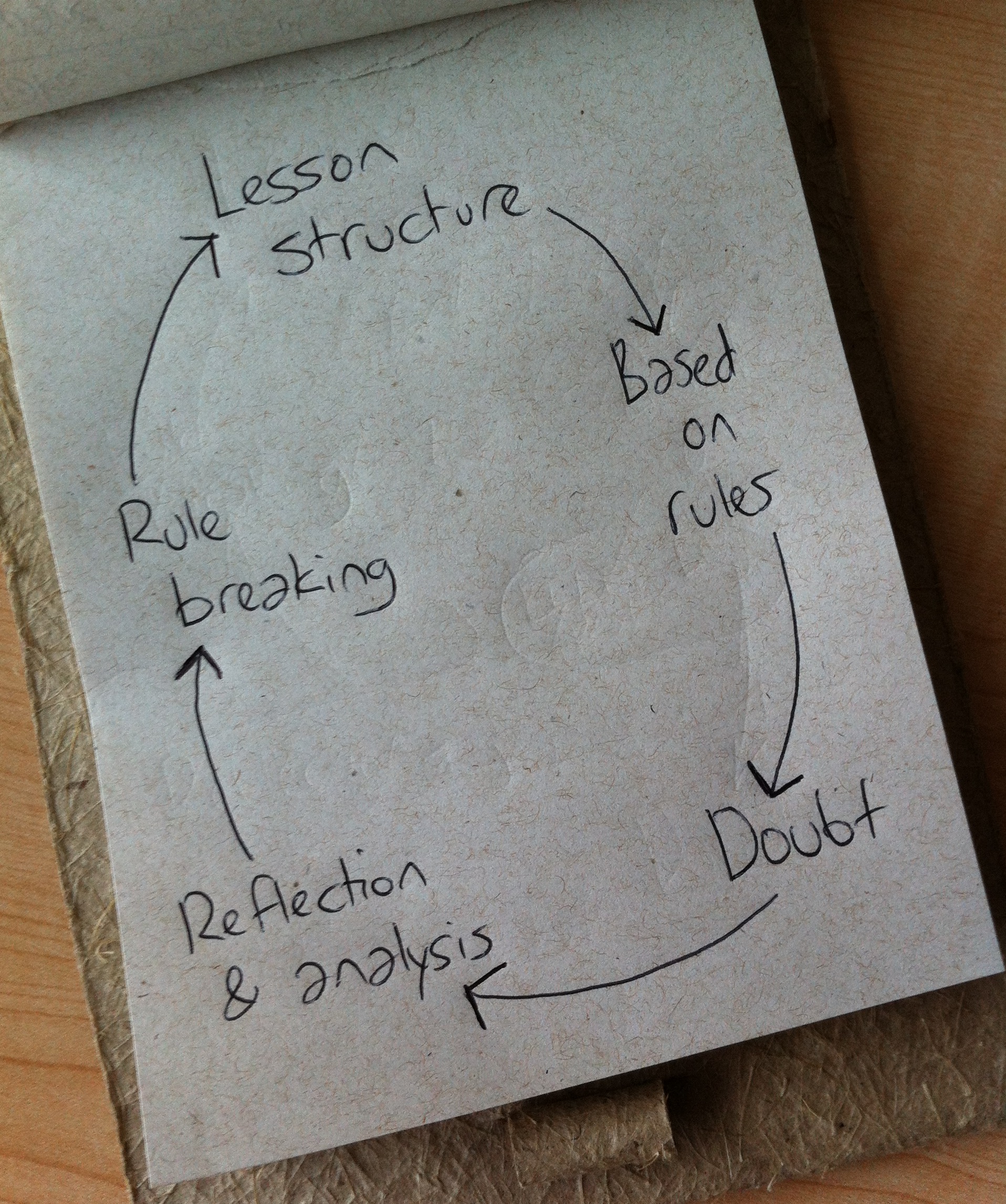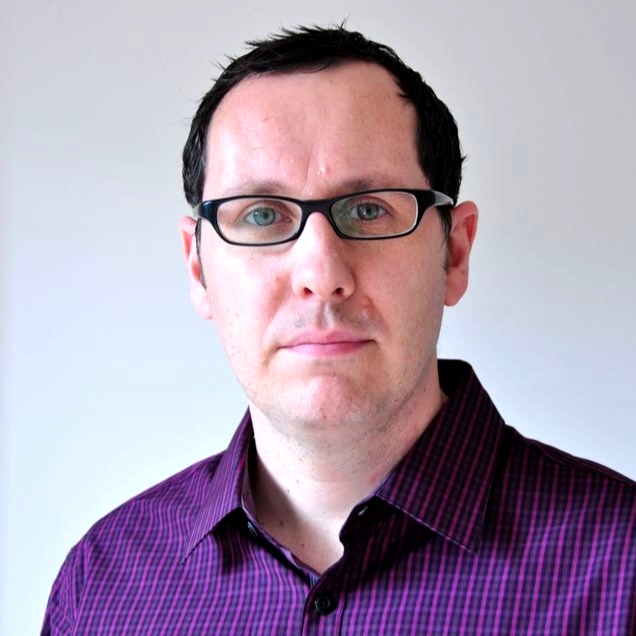James Taylor – Belgium
James Taylor is a teacher of English as a second language. Originally from Brighton, England, he currently lives in Brussels, Belgium where he teaches mainly business English in one to one classes. He’s a passionate advocate of a global teaching community, connected online that supports, cooperates and discusses our profession. He believes that as a teacher it is his responsibility to play a part in this community. He’s also a music obsessed, gardening, photographing, crafting, cooking, science and technology enthusiast.
What are you passionate about, James?
There are two things that drive me. The first is my love of teaching. The truth is that I wasn’t always a teacher, in fact I never saw myself as a teacher until it was the only job I could do. After teaching for some time, I found that I loved the job and that hasn’t gone away. It has inspired me and changed my life completely. It has given me a sense of purpose that I never had before and given me an identity. As a result, I feel I have a duty not just to my students but also to the profession itself.
Secondly, it seems to me that there has never been so much cynicism openly and publicly expressed as there is at this time. I don’t think this is healthy and I feel the need to counter this, so I have been trying to learn about how this world works and some of the wonderful things that human beings are capable of. There are countless examples in the arts, science, architecture and engineering of exceptional people who are trying to make the world a better place (just watch a few TED talks for examples). In my own small way, I want to contribute to this greater good and not be one of the people trying to drag us down.
How and why did you become a teacher?
Because I didn’t have a choice! I followed my partner to Brazil, her homeland, needed to do something and teaching English was the only option I had. Gladly, I seemed to be okay at it and I’m still doing it a few years later. To be honest, when I became involved in the world of professional development via Twitter and blogs, I was a bit embarrassed about how I became a teacher and would avoid mentioning it. At the first conference I ever attended, a very famous ELT speaker talked about ‘backpacker teachers’ in a very dismissive way. He argued that our profession was not professional enough and that there were too many unqualified teachers working in schools.
While I agreed with his point of view that we need to raise the professional standards of our field, I think it was unfair of him to label teachers like myself as unprofessional and bring the industry down, just based on how we became teachers rather than the way we taught. I think many good teachers enter the profession this way, and that once they realise that they want to remain a teacher, it is then their responsibility to become qualified. The truth is that there are many different ways that people can become teachers, and when we find the ones who love what they do, we as a profession and as a society, have to cherish them, protect them and give them a chance to grow.
Unfortunately it took me a while to come to that conclusion. I spent a couple of years not really mentioning my entry into teaching. Now I realise I have nothing to hide. How I became a teacher is completely irrelevant. What matters is what I do now, in my classroom and in my teaching community. Spending time with this community is what has given me the confidence not just to forget about this unimportant issue, but also to try new things, to challenge myself and my students and, I hope, become a better teacher and person as a result. That is the power of community.
What are you most interested in right now?
I currently teach business English to advanced learners, so I spend a lot of time watching presentations and analysing what it is in the way they speak that makes great speakers engaging. This can involve looking at very specific areas such as rhetorical questions, joke telling, charisma and how to pause while speaking. It’s different from other things I’ve taught in the past, and I find it very interesting, as do my students.
I’m particularly interested at the moment in how ELT seems, to me at least, to be designed for extroverted and outgoing students and teachers, and neglects introverted learners. I’m looking to do more research into this area in the future.
What things do you do to help you get better at being a teacher, James?
The first thing I needed to do in order to become a better teacher was to develop openness. I had to be ready to accept new ideas and acknowledge that sometimes I am wrong. I tell my students that mistakes are a good thing because that’s where learning happens. Well that’s true for me too. On a more practical level, I blog, I use twitter, I read blogs, journals and books, I go to conferences, online and in the real world, and I’m always on the lookout for new resources and stimuli for my lessons.
I have to give a special mention to #eltchat as this point. Every week teachers from around the world get together and discuss the issues that affect us as teachers on Twitter. Through the chat I have found a wonderful network of supporting and caring teachers, including many of the teachers you can find here in the iTDi community. Thanks to the tireless work of the moderators, especially Shaun Wilden and Marisa Constantinides (and also iTDi’s own Barbara Sakamoto), they have created a real community. They have also given me the opportunity to create the #eltchat podcast, which I present and produce every month, and this has been a wonderful experience for me personally.
What’s the biggest challenge you face as a teacher?
As a freelance teacher, it’s finding work and doing paperwork. I’m not very comfortable selling myself and I can’t stand the accountancy side of things. They are not the reasons I became a teacher. My advice if you are in this situation? Get it done as quickly as possible so you can spend time on the things that really matter.
What advice would you give to a teacher just starting out on a journey of professional development?
Realise that your students are your partners in this. You are going to work together on a collaborative project to improve their English. There will be times when you teach them, and they’ll be times when they teach you. At times, you will need to be a teacher, but at other times you will have other roles to play. Few jobs give you the opportunity to experience this kind of personal growth, so relish it!
James, is there any blog or online link you’d like to recommend?
There are many great ELT blogs that I love reading and being inspired by. You can find my favourites by looking at the blog roll on the right hand side of my blog. Instead, I’m going to recommend some non-ELT sites to provoke and stimulate your mind, some sites which might just provide you with a few ideas for lessons along the way. As I said above, there are many fascinating and wonderful projects out there, so why not bring them into your classroom?
http://www.brainpickings.org/
http://www.youtube.com/user/melodysheep
http://www.ted.com/
http://www.newscientist.com/
http://www.wired.com/
http://www.guardian.co.uk/lifeandstyle/family
http://www.bbc.co.uk/radio4/downloads/
What’s your favorite quotation about being a teacher?
“We must go beyond textbooks, go out into the bypaths and untrodden depths of the wilderness and travel and explore and tell the world the glories of our journey.” — John Hope Franklin

 Unbreakable Rules of @TheTeacherJames – James Taylor
Unbreakable Rules of @TheTeacherJames – James Taylor


